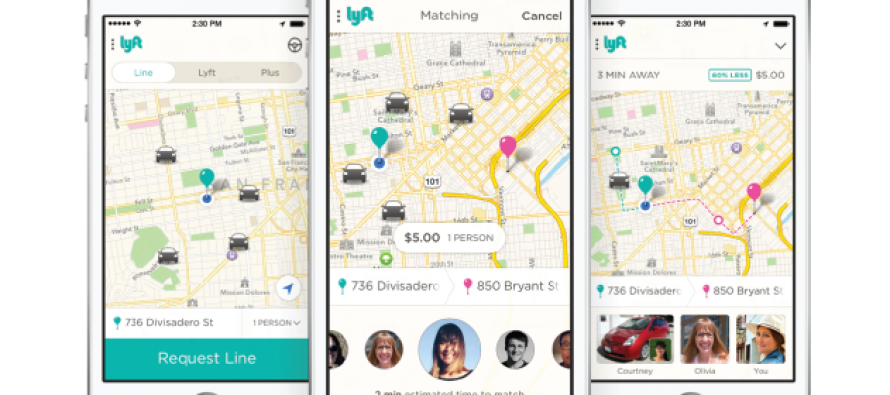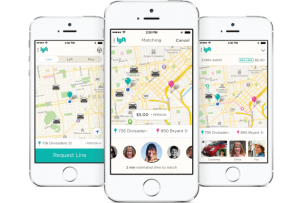Public Utilities Commission crashes into Uber, Lyft

 This week was supposed to be a Kumbaya moment for state legislators and ridesharing services. On Wednesday, Gov. Jerry Brown signed it into law compromise legislation allowing the firms to continue to flourish, while requiring them to increase their insurance coverage.
This week was supposed to be a Kumbaya moment for state legislators and ridesharing services. On Wednesday, Gov. Jerry Brown signed it into law compromise legislation allowing the firms to continue to flourish, while requiring them to increase their insurance coverage.
But just before then, the California Public Utilities crashed its regulations into the ridesharing services’ carpool operations, such as Lyft Line and Uber Pool.
Carpooling via smartphone app has become a key element of the services’ strategies for competitiveness and growth. Uber’s carpooling service offers rates some 40 percent lower than UberX, its most affordable regular option.
But in the CPUC’s bureaucratic lingo, a car pool is called a “charter party carrier.” The CPUC’s letter to Uber read:
“In accordance with §5401, the Commission has consistently found that charter party carriers cannot charge an individual fare when carrying multiple persons in a vehicle, and, therefore, a person chartering a charter party carrier vehicle must have exclusive use of the vehicle.”
However, Bloomberg reported the CPUC also observed it “lacks the flexibility to allow a type of transportation service that is against state law,” counseling the companies to “petition lawmakers to modify the state code if they think it is outdated.”
In response, the ridesharing companies vented their frustration with the state’s legal hurdles.
Uber said:
“The only conclusion we can come to is that the PUC doesn’t like technology, environmental progress, or anything that might make California a better place to live.”
Sidecar said:
“San Francisco was quick to embrace Shared Rides because they are so convenient and well-priced you can get across town for a just a little more than you would pay for the bus.”
Lyft championed its Lyft Line carpool as contributing to “carbon reduction and improved air quality,” high priorities for many state and city officials.
Indeed, the CPUC’s own website — featuring Brown’s picture prominently at the top — boasts of its efforts to reduce carbon use:
“California has already taken some huge steps to lower the state’s carbon footprint. Here are some of our most impactful programs. …”
Uncertain legal terrain
As Mark Rogowsky pointed out in Forbes, California’s regulatory framework is so arcane and complex the CPUC appears to have only inferred the transportation services’ carpools are illegal. Under current law, there actually are three categories of services:
1. A Passenger State Corporation, or PSC. Rogowsky explains: “[I]t can charge people individually for a shared vehicle. This is how SuperShuttle can drive around to multiple neighborhoods, pick people up and drop them all at the airport without running afoul of the law.
2. A “charter-party carrier,” oddly given the acronym TCP. “It can only rent out a vehicle by time or distance. Limos and charter buses fall into this category.”
3. Transportation Network Companies or TNCs, the category for ridesharing carpools. “The law for TNCs is unique in some critical ways — only TNCs are required to run criminal background checks on drivers, TCPs aren’t — but it hews closely to the way those vehicles have been regulated. And amid the legalese of Section 5401 of the state’s public utilities code, which concerns those TCPs, are these key words: ‘[N]o charter-party carrier of passengers shall … demand or receive compensation, for the transportation offered … on an individual-fare basis.’”
Scrambling to keep up
None of the services indicated it had any plans to shut down or suspend carpool features. Despite tooth-and-nail competition among the three, all have chosen in effect to call the CPUC’s bluff. As of yet, there is no indication the CPUC has created concrete plans to ensure their interpretation of the law is enforced — shifting attention back to lawmakers in Sacramento.
But the regulatory assault comes after the compromise worked out in the Legislature. Rather than ramming new regulations down the throats of the app-driven companies, lawmakers struck a deal that left all sides content, if only for the moment.
The CPUC’s action reminded everyone that not just legislators elected by the people, but unelected bureaucrats, hold clout in the Golden State.
Related Articles
L.A. politicians covet bullet-train funds
In a sign of frustration over the state’s transportation priorities, several board members with the high-profile Los Angeles County Metropolitan
Now New York fires a shot across California’s bow
Gov. Jerry Brown was not amused this past February when Texas Gov. Rick Perry made a four-day recruiting trip
How Severe is U.S. pension debt?
AUGUST 27, 2010 By STEVEN GREENHUT This piece was originally published on the Nieman Watchdog site. As the economy boomed,




